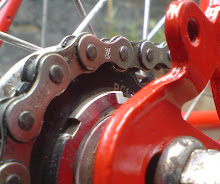As our political system spirals toward the centre-right, with a post-modern, ideology-free, managerial attitude to economics, the debate about what kind of economy we might want fades away. Such debate seems pointless in a globalised economy where change is glacier-slow and directed by the heads of international banking.
The debate itself was dominated by questions of how best to bend the capitalist economy to serve the needs of most. In practice, this once meant a system of checks and balances: auditing, policing, the judiciary and journalism holding business to account for its treatment of employees, resources, customers, investors and the community, while government levied taxes to redress any remaining imbalance. Now corporations receive subsidies to simply do what they would do anyway, while society’s poorest are threatened with withdrawal of breadline payments to get them into any menial job; it looks like that debate has been lost.
But was the point being missed anyway? Like monarchy or desiccated coconut, there is something fundamentally wrong with capitalism. The clue is in the name.
When asked what values your society holds, what do you say? Respect? Freedom? Opportunity? Care of the vulnerable? On the other hand, how do we run our society? We have, for hundreds of years, implemented a system where the reward is for accrual of capital. “Greed is good” was not invented in the 1980s--it has been the basis of Western business since Roman times (at least) and our way of life since the 1700s.
Capital and money are not necessarily the same thing. Money is the method of transaction--the way we distanced ourselves from barter and made trade more flexible as a result. Capital is that subset of money used for investment--the stockpile.
Money itself is a non-linear entity. Having £100 is more than 10 times more worthwhile than having £10. Life is cheaper when you are rich. This can be mitigated by progressive taxation and subsidy. But capital is much worse than money. And capitalism is the parasite that draws wealth from society.
It does so in the name of efficiency.
Efficiency is meant to be the strength of market-driven capitalism. State- or society-run institutions have no incentive, they say, to improve their performance and get the best out of resources. Private business, answering to its shareholders, has to maintain profitability. But how it does so revolves around those resources. Within legislative limits (and often outwith them) businesses will usually pay as little to the majority of their employees and will take from the environment without renewal. Consumer pressure has little effect other than to curb the worst excesses, and over consumption is a more fundamental problem than consumption of the wrong thing.
Investors want a return on their investment, usually expressed as a percentage annual increase in “value”. Investors will withdraw their funds if the percentage drops and, conversely, the encouragement is to make the percentage grow. Of course, growth cannot increase indefinitely, but it doesn’t stop them trying. And until the bubble bursts, the company gets bought, or settles into bloated maturity, every possible strategy will be tried to squeeze more out.
Which all begs the tricky question: what’s the alternative?
It’s easier to criticise than provide solutions, I admit, but there a couple principles that should be followed in establishing an alternative economy. First, a positive value (or values) has to replace the accrual of wealth at the core. Second, the true cost of resources has to be embedded in the system. And in the meantime, the non-linearity of money has to be recognised and compensated for with personal and corporate progressive taxation.
Wednesday, November 14, 2007
Subscribe to:
Posts (Atom)

